Plex: 1 January 2025
Earth Remembering; X Marks the Past; Announcing MarkPub 0.4.3; Let in the Light; Regenerative or Greenwashed; State of the World 2025; Pix from Italy; Fall 1986–As My Dad Lay Dying

Happy New Year! As we step into this new chapter together, I hope 2025 brings us moments of joy, opportunities for growth, and the strength to overcome any challenges that come our way. May 2025 be a year of meaningful progress. – Peter Kaminski
The Biweekly Plex Dispatch is an inter-community newspaper published by Collective Sense Commons on first and third Wednesdays of each month. Price per issue: 1 USD, or your choice of amount (even zero).
In This Issue
- Earth Remembering (Patti Cobian)
- X Marks the Past (Tibet Sprague)
- Announcing MarkPub 0.4.3 (Peter Kaminski)
- Let in the Light (Hank Kune)
- Regenerative or Greenwashed (Klaus Mager)
- State of the World 2025 (Sterling / Lebkowsky)
- Pix from Italy (Ken Homer)
- Fall 1986–As My Dad Lay Dying (Ken Homer)
Earth Remembering
by Patti Cobian
This piece came through as a response to the fear and anxiety that has arisen since the results of the election (though can probably be applied to other matters).

Earth Remembering
The day came and went,
and as for the Earth,
She paid little mind
Do you think, She said,
that I have not known this?
That I do not beat in every heart
that beats in mine?
I call to you
I call to each and every one of you
And though you may think
there are hearts too dead
to hear my call,
you, too, have forgotten
that my heart beats
in every body
and every blade.
You have forgotten
my wisdom
Or maybe you have never known
what it is
that I do
in dreams
and sleep
in idle thoughts
and quickened heartbeats
Your simple minds
cannot hold
the ends
of a billion threads
And you forget your place
when you try
You forget my place
when you try
A planetary virus
is not a wrongness
But you mistake the symptoms
for your business
Come back to me, She says,
I am alive in you
and I call to you
I call you back to your joy
so that you may feel your grief
I call you back to your heart
so that you may sleep
and rise to meet me in your wisdom
and not your fear
where you are of no use to me.
Yours is not a battle of mind, you see
It never was
nor will it ever be
anything more
than a clarion call
to your remembering
X Marks the Past
Why the Digital Public Square Isn’t Working — and What We Can Do Instead
by Tibet Sprague
Originally published at X Marks the Past (Medium).
Large, global “public square”-style social networks like X (formerly Twitter), Threads, Mastodon, and Bluesky promise a wealth of information, conversation, and community. They offer unique benefits like the ability to stay on top of fast breaking news, cross-pollination of ideas, and a space to interact with all kinds of people across the globe and find those who share your interests.
However, despite these benefits, these platforms have significant flaws. I will even argue that ultimately they do more harm than good to society. While they are often celebrated as offering an open public sphere for all to engage with how they want, in practice this approach homogenizes culture, flattens nuance, and amplifies extremism and polarization. These platforms attempt to bring the entire world into one space with one set of rules — but this is neither realistic nor healthy for individuals or communities.
Personally, I find that these platforms more often than not leave me activated, exhausted, and feeling less alive and connected when I use them. I’ve finally decided to put words to these feelings, and highlight why I am working to build a healthier, more pro-social network in Hylo.
The Downsides of the Global Public Square
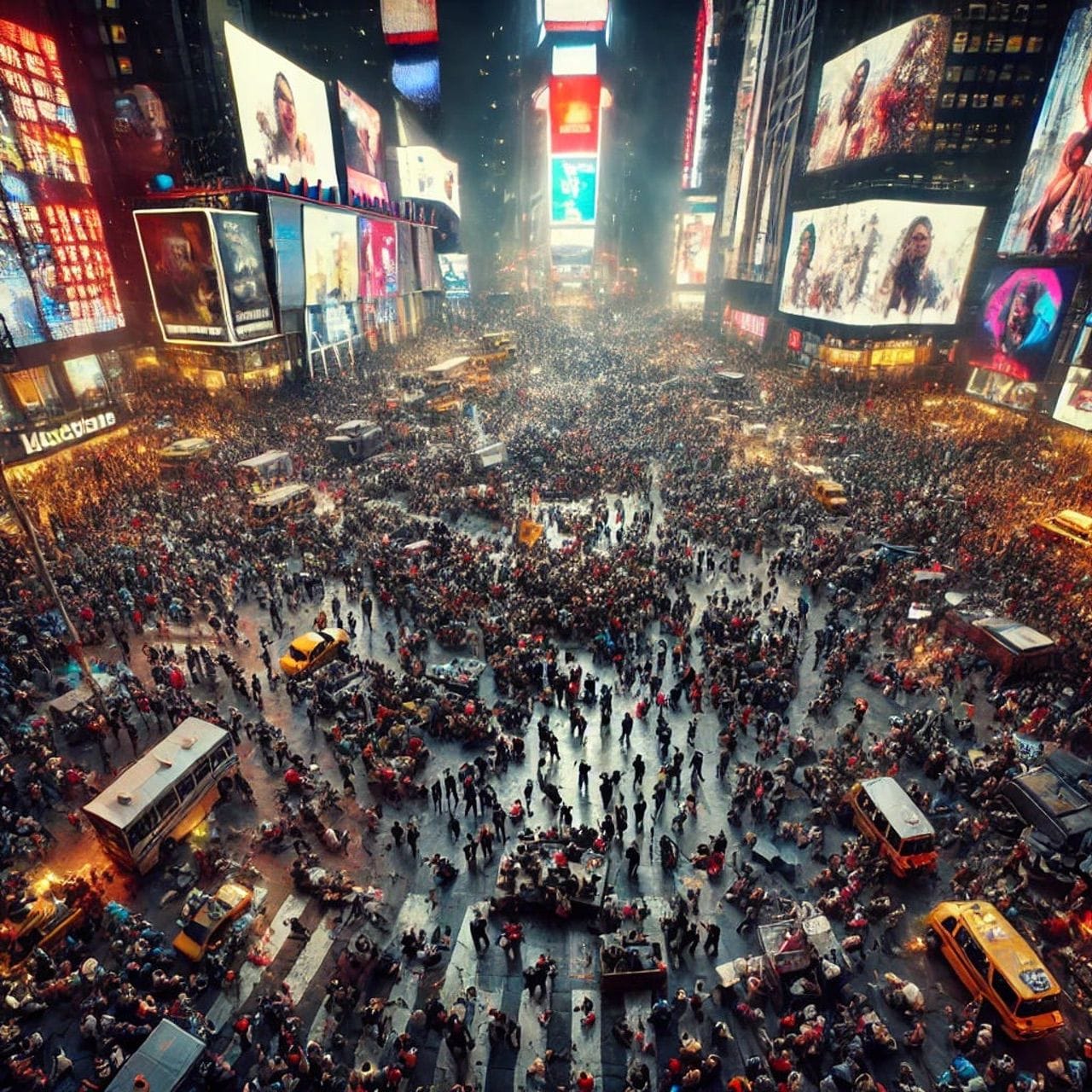
- Extremely Polarized Meme Bubbles 🫧
Far from creating shared understanding, these networks thrive on extremism, and magnify polarization. Algorithms often surface extreme content, encouraging outrage and argument instead of thoughtful conversation. People respond more to activating posts, rapidly turning nuanced issues into battlegrounds where engagement metrics matter more than connection. Over time people are nudged into separate spheres of interaction, filter bubbles where you aren’t actually seeing all sides of an issues and we become more divided from each other.
2. The Attention Economy Problem 👀
Particularly with for-profit platforms like X, their business models depend on maximizing attention and engagement — and they achieve this by prioritizing outrage, controversy, and sensational content. This harms public discourse, distracts from meaningful action, and keeps people scrolling instead of living. Also, platforms owned by one, or a small group of, individuals oriented towards their own benefit, will never prioritize the health and wellbeing of people and planet.
3. Context Collapse & Homogenization 🌀
In a single digital global square, cultural differences and local contexts are often erased or misinterpreted. Instead of celebrating diverse ways of communicating and engaging, these platforms tend to standardize behavior. You are rewarded for fitting in with the current memes of the moment, creating a blandifying effect. At the same time, you might post something intended for a small audience — friends, colleagues, or people from a specific cultural background — but it’s seen and interpreted by strangers without shared context. This can lead to misunderstandings, backlash, or unintended consequences.
4. Disembodied Relationships & Our Worst Selves 👻
When interacting with strangers on the internet, it’s easy to lose sight of our humanity. The global square can prioritize interactions that are abstract, performative, and disconnected from real life. This erodes trust and makes genuine relationships harder to build. The disembodied, pseudonymous nature of these platforms makes it easy to act as our worst selves — to misunderstand, lash out, seek attention, bully, or create conflict.
5. The Crisis of Scale — One-Size-Fits-All Moderation Doesn’t Work ⚖️
Social platforms apply moderation policies that are supposed to work for everyone, everywhere — but communities need context-specific moderation. Trust and safety tools are often ineffective and impossible to enforce fairly when millions of people share one virtual space. What’s acceptable in one place may be harmful in another. Harassment, misinformation, and hate speech become inevitable, while moderation policies disproportionately affect marginalized groups.
6. The Amplification of Power Dynamics 💪
In global platforms, those with the loudest voices, largest followings, and the most resources dominate the conversation. This often amplifies existing inequalities, giving more power to celebrities, politicians, and influencers while marginalizing smaller voices.
7. The Noise Problem 🗣️
The sheer volume of content in global platforms makes it impossible to focus on what matters. Important information is buried under memes, ads, and viral outrage, creating a signal-to-noise problem where meaningful conversations and opportunities get lost.
8. The Mental Health Toll 😵💫
Being exposed to a constant stream of global news, arguments, and conflicts creates emotional and cognitive overload. The public square brings every crisis, tragedy, and outrage into your awareness, even when it’s outside of your sphere of influence. It also contributes to a culture of comparison to others and attention seeking. This has a particular impact on young people.
9. Lack of Deep Collaboration 🤝
The global square is optimized for broadcasting, debating, and reacting — not for actually working together on meaningful projects. While public discourse has its place, it rarely translates into coordinated, real-world action.
10. The Loss of Local Resilience 🌱
When people rely on global platforms for connection, they often neglect local relationships and resources. This weakens community resilience, as people don’t know their neighbors or how to solve problems together.
These challenges aren’t accidental; they’re structural. These platforms are designed to stimulate, to keep people scrolling and clicking, and to prioritize engagement above all else — even when it leads to harm. This model doesn’t build trust, connection, or collaboration. It builds addiction and outrage.
Hylo: A Different Kind of Social Platform
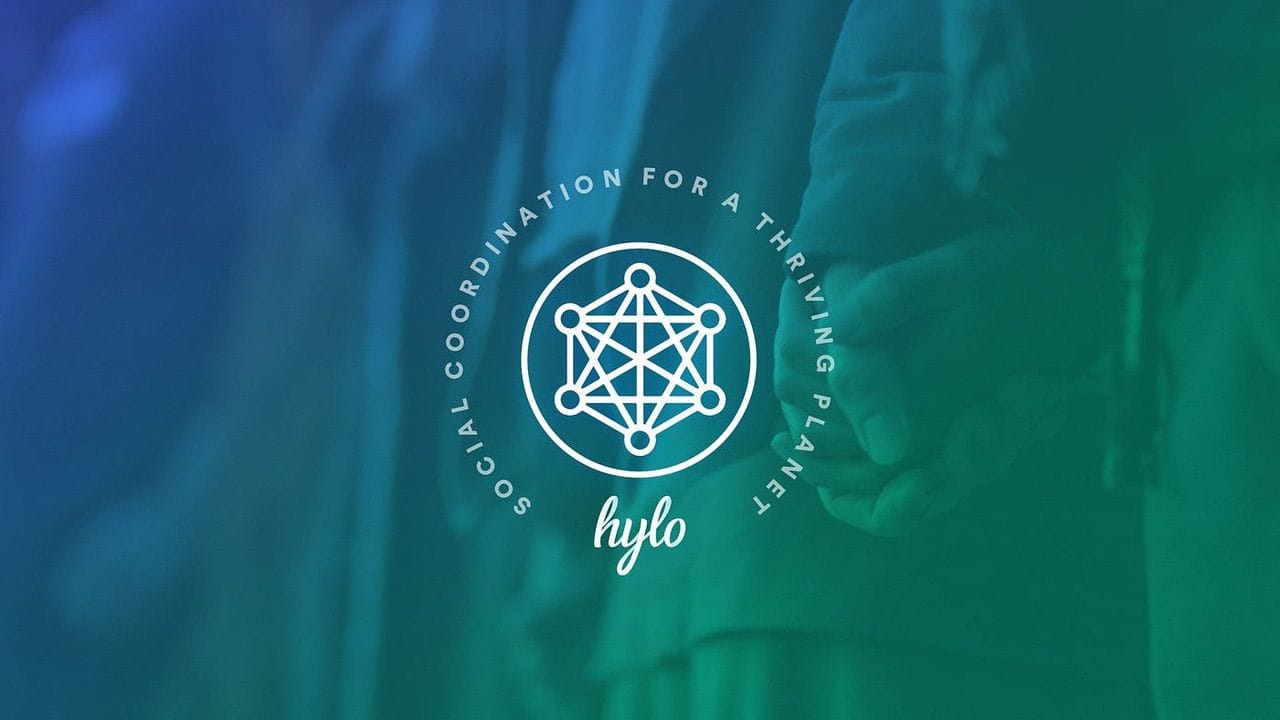
At Hylo, we believe there’s a better way. Instead of massive public squares, we’re building context-specific places for communication, collaboration, and coordination. Here’s what makes our approach different:
1. Place-Based and Contextual Communities
People don’t live in one big global square. We live in neighborhoods, bioregions, and purpose-driven groups. Communities need specific tools, norms, and agreements to thrive. That’s why Hylo supports place-based coordination with features like geographic maps and nested groups, and is oriented towards enabling communication and coordination within and across purpose-driven groups with shared identities and goals.
2. Connection Over Compulsion
Hylo isn’t designed to hook you with inflammatory content or endless scrolling. Instead, we’re focused on building tools that help people build trust, strengthen relationships, and take action together in the real world. Whether it’s mutual aid, organizing a community project, or collaborating with others to create something meaningful, Hylo is about connection that matters.
3. Different Communities, Different Cultures
Communities are unique. They have their own values, agreements, and ways of engaging. That’s why we’re building collective, community-specific moderation tools. Instead of imposing one-size-fits-all rules, we empower communities to define their own norms and support each other in upholding them.
4. Ownership That Serves People and Planet
Platforms owned by a single wealthy individual or driven by profit motives will never have the best interests of people and planet in mind. At Hylo, we are building open source tools that support cooperation — not profits or power for a few. We engage deeply with all the Hylo stakeholders in the design of the platform and plan to eventually “Exit to Community”, turning Hylo into a true public good — a technology commons.
How does Hylo solve the above issues?
- Polarized Meme Bubbles: Hylo creates spaces where conversations are purpose-oriented and community-specific, rather than amplified for engagement. By prioritizing meaningful discussion over viral content, Hylo reduces polarization and fosters understanding and collaboration within shared contexts. Hylo also enables posting to multiple groups at the same time, and creating networks of connected groups, creating bridging across communities and shared understanding and context.
- The Attention Economy: Hylo is a non-profit, with entirely different incentives. It is designed to build trust, relationships, and collaboration, not maximize screen time. We focus on helping people connect and take real-world action, rejecting the exploitative engagement loops that dominate traditional social media.
- Context Collapse & Homogenization: Hylo organizes communication within specific communities and contexts, so conversations happen among people who share understanding and purpose. This reduces the risk of context collapse and ensures interactions are productive and respectful. Communities are empowered to create unique spaces that reflect their identity rather than conforming to a global standard. Each Hylo community defines its own norms, preserving and celebrating cultural diversity.
- The Crisis of Scale & One-Size-Fits-All Moderation: Hylo provides community-driven moderation tools based on pro-social principles, allowing each group to define its own rules and collectively uphold them. This approach ensures moderation is relevant, fair, and context-specific, rather than imposed from a disconnected global authority.
- Disembodied Relationships & Our Worst Selves: Hylo prioritizes relationship-building and collaboration, creating spaces where people show up as their best selves to engage meaningfully. By fostering trust and action, Hylo shifts interactions from abstract arguments to real, embodied connections.
- The Amplification of Power Dynamics: Context-based communities with a strong web of relationship can more easily ensure equitable participation, where everyone can be heard and contribute meaningfully. Hylo groups are built around shared values and purposes, reducing the dominance of influencers and creating a more balanced space for collaboration. Hylo offers the ability to distribute roles and responsibilities throughout the group, and gives everyone the power to contribute to moderation. Decisions can be made collectively using Proposals within the platform itself.
- The Noise Problem: Hylo minimizes noise by organizing information within communities and projects, making it easy to find what matters most. Instead of being overwhelmed by a global feed, members can focus on purposeful conversations and actionable content.
- The Mental Health Toll: Context-based platforms narrow the focus to what you can actually impact — your community, projects, and relationships — reducing anxiety and fostering a sense of agency. And Hylo is designed not to keep you scrolling but to get you out into the real world. Helping people build trust and relationship locally is one of the best known ways to increase well-being.
- Lack of Deep Collaboration: Hylo is designed for doing, not debating. Communities have access to tools for project collaboration, mutual aid, and coordination — empowering members to work together on meaningful initiatives rather than getting stuck in endless arguments.
- The Loss of Local Resilience: Hylo’s place-based tools, like geographic maps and nested groups, help communities connect locally and solve problems together. By fostering real-world collaboration, Hylo strengthens local relationships and resilience, empowering people to care for each other and their environments.
The Hylo Public Stream
This all being said, Hylo does have a Public stream, where posts can be shared globally with the entire Hylo audience. This is an experiment, and it is quite different from other platforms. We are considering renaming it “The Commons” and would love feedback on that. The main differences between this space and something like X are:
No algorithm: Right now it is just a stream of the latest posts from across the Hylo ecosystem. This means no black-box system trying to maximize your engagement. Longer term we would love to open things up so people can find, create and use all kinds of curation algorithms based on their particular needs and desires.
Gatekeeping: Right now you have to add your post to a Hylo group to also be able to add it to the Public. This means that there will always be at least one group engaged with moderating the content, alongside the Hylo stewards. Furthermore, we have to first approve groups to gain access to the Public space. This process is still being figured out but the goal is to ensure that only groups that are not spam and are abiding by the platform agreements are allowed to contribute to the Public/Commons.
We understand this may feel like uncomfortable centralization, but again the public area of Hylo is not the main purpose of the platform. It is just a way to create an additional layer of weaving and connection among folks who share our values and the goal of creating a just and thriving world for all. We think of it as modeling what a truly cared for digital commons could feel like, and if you want to be a part of it you have to be a good steward of it too. Others on the platform are of course free to create their own networks with their own agreements and invite people into that.
We are inspired here by the success and utility of the platform Front Porch Forum, which has become core civic infrastructure in Vermont (80% of people who live there participate in it and find it valuable) and which takes things even further and pre-approves every single post before it gets shared on the platform! We don’t want to go that far, but we do imagine e.g. bioregional groups around the globe finding value in healthy local forums like this — imagine if Next Door was a supportive place for all :)
We’d love feedback on this system and our plan for The Commons.
A Vision for the Future

In 2019 we at the Terran Collective were trying to figure out how to activate more cooperation and collaboration in our Bay Delta bioregion. We were doing regular in person gatherings, building community and momentum around a collective vision for how to create a thriving future for our bioregion. But we found that the digital tools we use for communication and organizing were not conducive to deepening trust and cooperation as we collaborated. This is when Hylo came into our lives. The VC backed community platform had run out of steam and was offered to Terran to take over stewardship of. We have since turned it into an open source, non-profit platform and are building the tools we ourselves need to better coordinate in pro-social ways.
The world doesn’t need more global public squares. It needs better tools for contextual, community-centered, and place-based connection. Platforms like Hylo can bring real value to people’s lives — through mutual aid, collaboration on projects, trust-building, and decentralized decision making — without the overwhelming noise and harmful externalities of traditional social networks.
Instead of endless debate and algorithmic addiction, we envision communities coming together to solve problems, care for each other, and make real change.
The future of social connection isn’t global uniformity. It’s local, intentional, and rooted in trust.
If you’re tired of the noise and ready to connect in a way that matters, join us on Hylo!
🎉 We currently have a generous $100k matching donation through the end of the year, if you want to support our work please make a tax-deductible donation and share with your networks!
Announcing MarkPub 0.4.3
by Peter Kaminski
Bill Anderson and I are pleased to announce MarkPub, a nice Markdown-based static site generator. It transforms folders of Markdown files (including sub-folders and optional links between files) into websites that you can easily publish to the web for free. Markdown files are easy to edit and arrange, so this turns out to be a great way to build text- and link-heavy websites, without any HTML knowledge.
MarkPub evolves from Massive Wiki Builder, which a number of OGM folks have been using to publish their Obsidian vaults as Massive Wikis. Two key additions have been made: MarkPub is now packaged as a Python module, for seamless upgrades, and it features a new theme with much better sidebar / navigation support.
This is a soft launch of MarkPub at version 0.4.3. As we finalize the theme, documentation, and remaining details, we plan to release version 1.x.x in January.
If you’d like to know more, get in touch with Bill or me, or pop into Massive Wiki Wednesday, every Wednesday at 12:30 PT / 3:30 ET on zoom/84876942036. Or drop by ~massive-wiki on CSC Mattermost.
Let in the Light
by Hank Kune
I took a walk in the winter woods
on the last day of the old year.
There was space for reflection there.
Then the clouds shifted their focus
and let in the sun.
More room for the sun, I thought,
That’s what the forest needs.
The trees will shine in the light, I see,
and so will we.









Regenerative or Greenwashed
by Klaus Mager
In the realm of industrial agriculture, where endless expanses of monoculture fields dominate the landscape, a silent crisis looms over the soil. With fewer than 60 harvests remaining before widespread topsoil depletion, as warned by the UN, the future of farmland fertility hangs in the balance. Concurrently, the nutritional value of our food is dwindling, while the prevalence of toxins and heavy metals in our diets is escalating. This contributes to a surge in diet-related illnesses that now top the global mortality charts, straining healthcare systems worldwide.
Coupled with the escalating challenges of climate change—disturbed water cycles, prolonged scorching growing periods, and erratic weather patterns—the outlook for our contemporary food production system appears grim and unsustainable.
Recently, McKinsey & Company presented a report on regenerative agriculture as a potential solution, outlining strategies to rejuvenate farming practices while maintaining economic viability. Although the concept of no-till cultivation, cover crops, and carbon trading seems promising at first glance, a deeper examination uncovers a contrasting reality.
In this newsletter, I delve into a more intricate analysis, revealing that McKinsey’s suggestions, while offering marginal enhancements to the prevailing mono-cropping model, fall short of the radical transformations necessary to revive soil vitality, foster ecosystem regeneration, and ensure global food security.
Regenerative or Greenwashed? A Response to McKinsey’s Vision for Farming (Google Docs)
State of the World 2025
via Charles Blass
In January 2000, Bruce Sterling and Jon Lebkowsky initiated their annual “State of the World” discussions on The WELL, a pioneering online community platform. The inaugural conversation, titled “A Viridian Future,” focused on Sterling’s Viridian Design Movement, which emphasized environmentally sustainable design and technology.
These dialogues have continued annually, covering a wide range of topics including technology, politics, culture, and global trends. Each year, Sterling and Lebkowsky offer insights into the evolving state of the world, reflecting on past predictions and current developments. For instance, in the 2014 discussion, they examined the influence of major tech companies, referred to as “the Stacks,” on global society.
The “State of the World” conversations provide a unique longitudinal perspective on the intersection of technology and society over the past two decades. They are accessible through The WELL’s archives and Jon Lebkowsky’s personal website, offering valuable insights into the challenges and opportunities that have emerged during this period.
Here is the 2025 edition: Bruce Sterling and Jon Lebkowsky: State of the World 2025. They write, “This conversation will continue for at least two weeks, through January 13, assuming the state of the world is relatively stable for that long and we aren’t zapped by an electromagnetic pulse...”
Pix from Italy
by Ken Homer

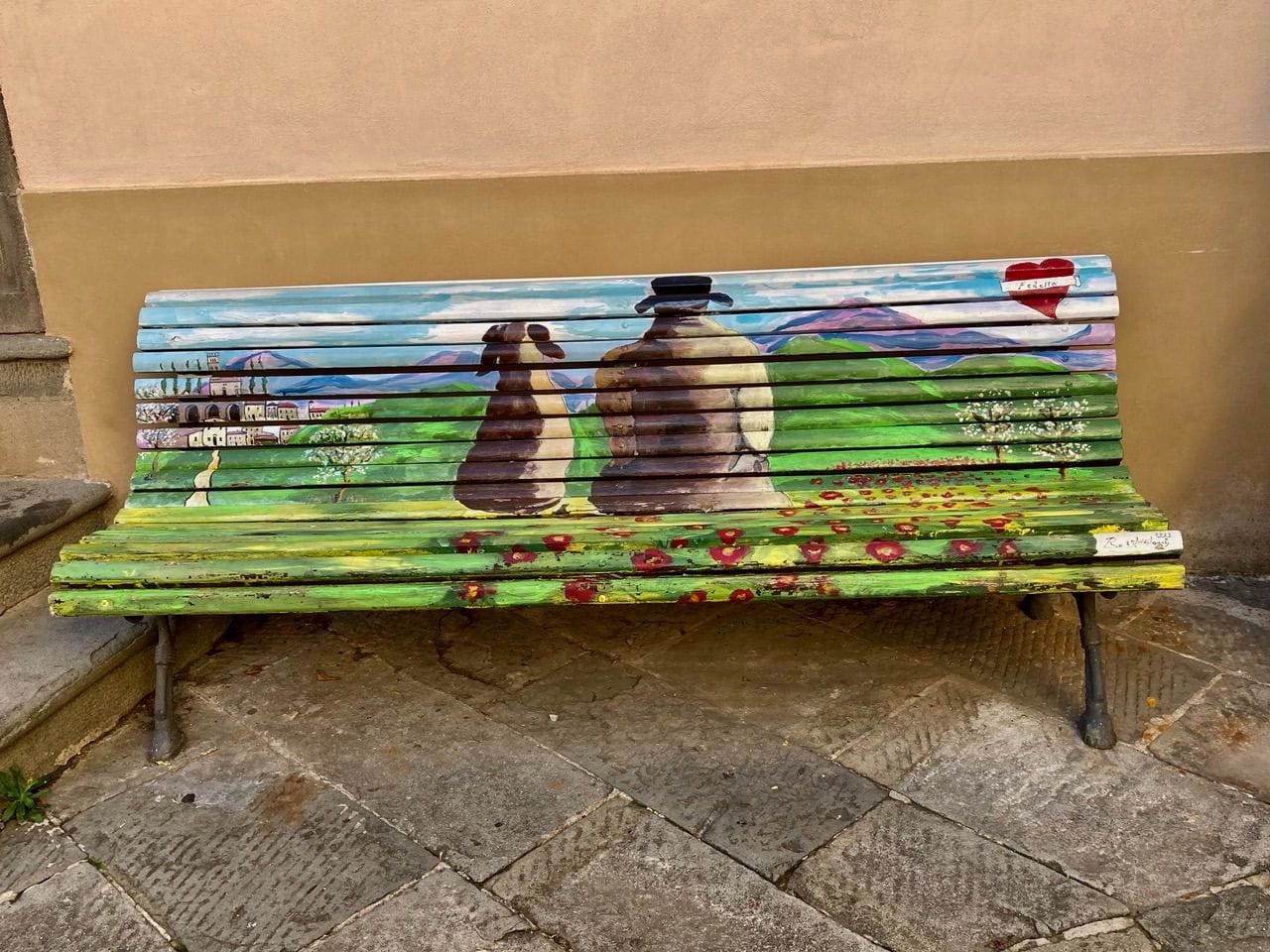
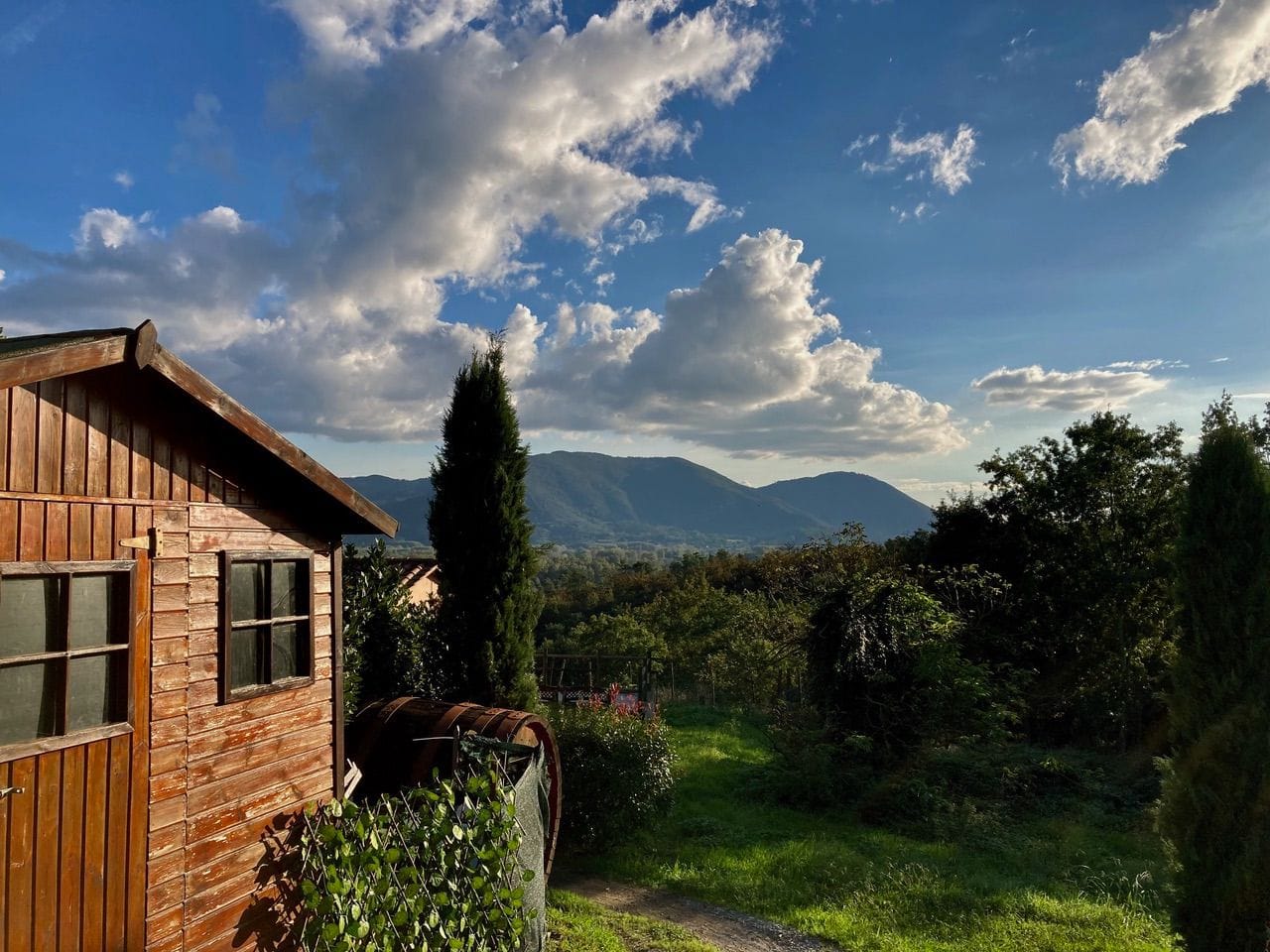

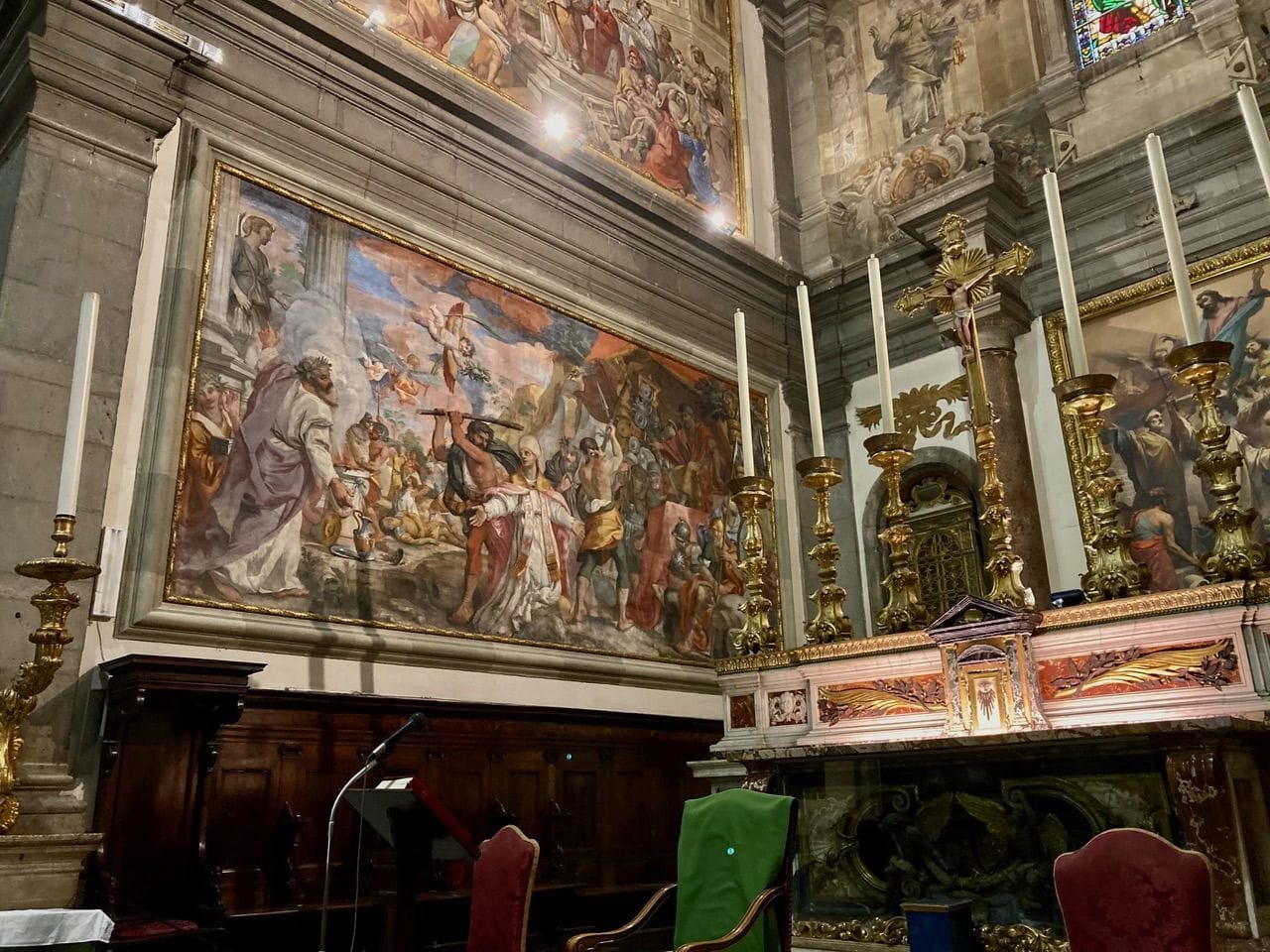

Fall 1986–As My Dad Lay Dying
by Ken Homer
I heard a story from a cousin of mine.
You need to know that my dad was 42 when I was born.
And his dad was 42 when he was born.
So, all my first cousins are a generation older than me.
I suspect that my dad was an oopsie baby.
This story adds weight to that theory.
My dad had an alcohol problem.
A big one.
He came by it honestly if that is fair to say.
His dad had the same problem.
And his father before him.
And all their brothers.
And all my male cousins on my dad’s side.
All of them succumbed to the allure of ethanol.
Their dispiritedness turned them to distilled spirits
in a fruitless search for a healing balm for the ills of their souls.
The story goes like this:
One day, my cousin had to pick up my dad at a bar.
He was too drunk to drive and to his credit he knew it.
And he called my cousin for a ride.
My dad was in his forties when this happened.
So, my dad gets into my cousin’s car, and he’s drunk but coherent.
When they reach my aunt’s house something happened.
My cousin says it was like a switch got thrown.
My aunt came up to my father and started to slap him.
She was yelling at him and telling him to get out.
“Nobody wants you here.
We never wanted you.
Nobody wants you.
Go away!
Get out!”
My dad suddenly starts to act far drunker than he was.
And he’s crying and sobbing and apologizing.
But my aunt keeps telling him to get out.
And he walks out into the cold winter night–alone.
It was many years before I put two and two together.
I realized that my sister telling me to leave her house on Christmas day
so that they could have a family Christmas dinner
was the same family pattern being enacted again some 40 years later.
Only this time with different players.
Somehow this eases the pain of that memory a little.
But it makes me so much sadder that the darkness
that’s lurking in the hearts of the men born into paternal line
hasn’t often been effectively faced.
There’s a trail of broken men with suffering wives and kids in my tribe.
Nobody wants to talk about that.
And so, the pattern continues unabated
and I’m powerless to stop it.
Ken Homer • Jan 2024
charles blass
If I add 36 words, this issue gets an even 4,096! The quick brown fox jumps over the lazy dog while singing melodiously about moonlit adventures and starlit dreams throughout the cosmic dance of time.
Thank you for reading! The next edition will be published on 15 January 2025. Email Pete with suggested submissions.
Grateful appreciation and many thanks to Charles Blass, Patti Cobian, Ken Homer, Hank Kune, Klaus Mager, and Tibet Sprague for their kind contributions to this issue. Thanks also to Bruce Sterling and Jon Lebkowsky for making their SOTW 2025 publicly accessible.